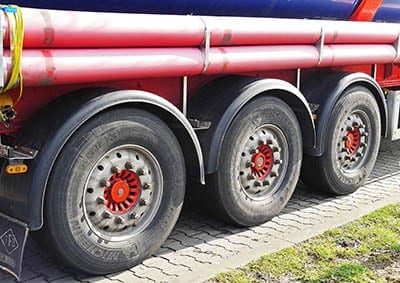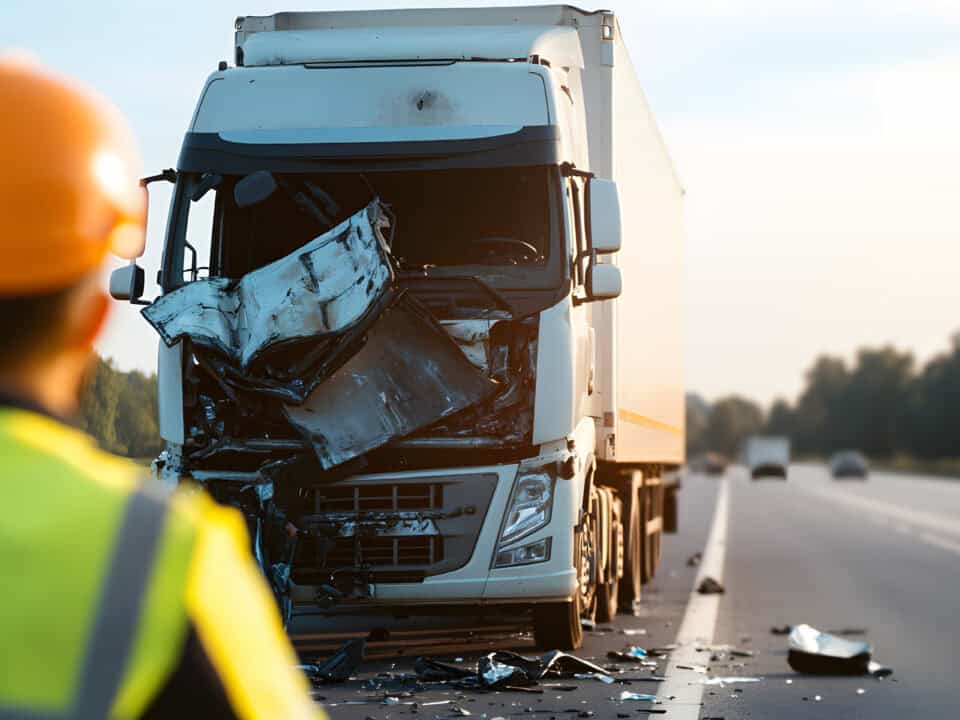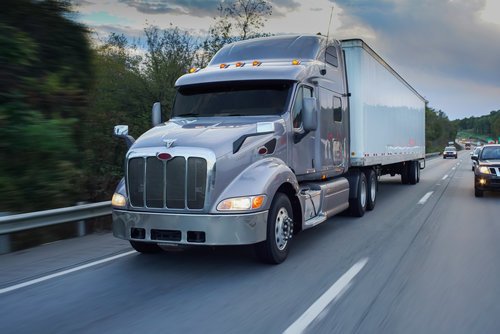 While most of us know the basics on what to do in case of a vehicle collision with another car or truck, things can be complex and confusing if you’re involved in a collision with a tractor trailer. Any wreck involving a tractor trailer doesn’t just involve you and the driver of the semi, but also the company that may employ the driver, and all of the insurance companies that may have coverage involved in the collision.
While most of us know the basics on what to do in case of a vehicle collision with another car or truck, things can be complex and confusing if you’re involved in a collision with a tractor trailer. Any wreck involving a tractor trailer doesn’t just involve you and the driver of the semi, but also the company that may employ the driver, and all of the insurance companies that may have coverage involved in the collision.
This can leave you unsettled, confused, and stressed while trying to deal with injuries and the legal aftermath. Today, we’d like to walk you through what to do if you’ve been involved in an accident with a semi.
First — Assess the Situation
If your injuries are minor and you are able to safely move around, try to get yourself and your vehicle out of traffic. Many secondary collisions occur when new vehicles come upon the scene of a recent accident and aren’t able to stop in time. If you can move your vehicle, do so as soon as possible. Call 911 or the police right away to report the accident and any injuries suffered in the collision.
If you believe you are or may be seriously injured, let 911 know about this and stay put to await medical attention. If you’re not too injured to safely walk around, you should try to take interior and exterior photos of the damage done both to your vehicle as well as the tractor trailer, if any. If you’re unable to get these photos right away, that’s okay; just make sure a relative or friend takes photos as soon as possible for documentation purposes.
Second — Just the Facts, Please
When the police arrive, their goal will be to look at the situation and get an accurate, complete timeline of how and when the accident occurred for their own records. They will ask you to walk them through what happened when. If you are too shaken up, anxious, upset, or stressed to feel that you would be able to be accurate, let the officer know as much before giving your statement. You are not required to give a written or recorded statement at the scene of the accident, so only do so if you feel up to it.
Stick to the facts, don’t embellish, and don’t feel the need to establish who was at fault at this exact point in time. What is most important is that the police officer knows what happened — at this point, verbally taking the blame (or blaming the driver of the tractor trailer) is not helpful and might actually hurt your case later on.
Don’t discuss the policy limits on your insurance with either the other driver or the police, but make sure the name and number for your insurance company and agent is made available to both the other driver and the police officers on the scene.
Third — Don’t Call a Tow, Call Insurance
Contact your insurance company or agent to report the accident. If the accident was minor, this may be done before the police arrive, but in serious accidents it’s often better to wait until you’ve spoken to the officers on the scene. Give them the same facts you gave the police, walking them through the timeline, and ask what they would like done with the vehicle.
Most insurance companies will call a towing company for you and have the car removed to one of a list of collision repair locations that they keep on-hand, and you’ll want to ensure your car goes to one of these ‘covered’ locations to streamline the insurance process.
Four — Collect Evidence
Make sure you have written or recorded statements from the other driver and any bystanders who may have witnessed the accident and stayed around to help. Collect the vehicle information for the tractor trailer, what company the driver works for, their name, insurance company, and any other information that may help you later on such as the name and contact info of any other witnesses.
Remember to be thorough — you’ll be reconstructing the accident later by speaking to people who were not there. Any detail, no matter how small, may come in handy in creating an accurate representation of what occurred.
Five — Aftermath
Even after you’ve left the scene, the road has been cleaned up, and your vehicle has been towed to a local collision center, there are a few steps to take to ensure you’ve adequately covered the details needed:
- Insurance: Follow-up with both your car insurance and health insurance companies (if injuries required medical care) immediately and consistently. Your health insurance will need to be informed of any ongoing medical needs and treatment, while your auto insurance company will need to communicate with you regarding damages, repairs, possibly totaling the vehicle, and any issues they may be having with the other driver and/or his or her insurance company. In both cases, document names and job titles of anyone you speak with, as well as the content of the conversation. For more information on how to handle discussions with car insurance, see our previous blog here.
- Medical: Don’t skip medical care! Even if you feel fine or are just “a little bruised” after an accident, serious injuries can sometimes take time to make themselves known. Seek medical care as soon as possible and continue to communicate any changes in your health that may be related to the accident to your physician. Keep documentation for every medical appointment, test, diagnosis, or treatment you receive.
- Legal: Contact an attorney quickly after the accident. You may only need a quick consultation to feel comfortable with your situation, or you may require longer-term legal representation, but it’s good to know your rights so you’re not left left vulnerable to insurance bad faith. Bring any and all documentation you have available to your consultation. Even in the best cases, automobile, tractor trailer, or motorcycle accidents involve a lot of paperwork, so having someone who knows what to look for and what needs done at your side can be invaluable at ensuring your rights are represented.
Involved in a Tractor Trailer Collision? Give Us a Call
Our attorneys have experience working with those involved in tractor trailer wrecks, and we’re happy to sit down with you and discuss your unique situation and help you decide on your next step. Based centrally in Columbia, South Carolina, it’s our mission to ensure that all South Carolina citizens have their individual rights represented. Request your FREE consultation today by calling (803) 779-7599 or contacting us online at any time!



